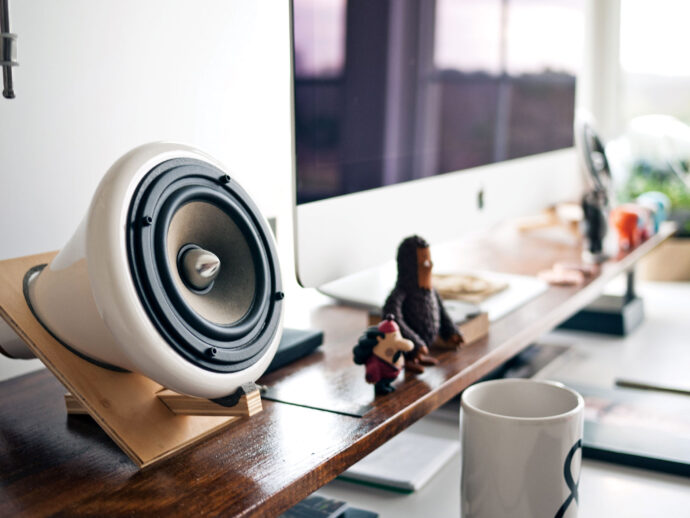
We take lots of things for granted. Good hearing’s one of them—unless you’re one of the almost 1 million Canadians who struggle with hearing loss. The good news is that there are plenty of things we can do to avoid being one of them. Read on.
How many times did you say, “Pardon me?” or “What?” or “Say again?” today? If the answer is not at all, you probably have good hearing. But when your hearing is impaired, this can be a common mantra—and a real struggle.
We take lots of things for granted. Good hearing’s one of them—unless you’re someone who struggles with hearing loss. From the moment you wake up in the morning until you pass gently into slumber at night (well, not so gently if you have a snoring partner—but that’s a whole other problem!)—and even during sleep, your ears are working.
Did you know?
The Hearing Foundation of Canada warns, “Hearing loss is the fastest growing, and one of the most prevalent, chronic conditions facing Canadians today.” It’s no longer a seniors’ problem. More than 1 million Canadians aged 15 and older report having a hearing limitation. Other studies suggest it may be closer to 3 million.
There’s an increase in depression and anxiety rates among people with significantly impaired hearing. A 2013 study also linked hearing loss with cognitive decline in older adults.
Noise-induced hearing loss
Such hard-working appendages should be rewarded with your respect. It’s easier than you might think to prevent the most common type of hearing loss. Noise-induced hearing loss (NIHL) can be temporary. But repeated exposure to loud noises over long periods can make this hearing loss permanent.
Did you know?
While occupational noise has decreased since the early 1980s, social noise exposure has tripled for young people. European and American studies indicate between 10 and 66 percent of teenagers exhibit hearing damage, the higher number associated with greater use of personal music devices and rock concert attendance.
Warning signs of overly high noise level
- ringing or buzzing in your ears
- muffled, unclear sounds
- difficulty following or understanding conversations against background noise
It’s louder than you think!
Scientists say that prolonged exposure to noises higher than 85 dBA (A-weighted decibels) can cause hearing loss. A normal conversation usually reaches about 60 dBA. Surprisingly, many everyday things can expose us to 85 dBA or higher:
- music through headphones or earbuds
- live music concerts
- video games
- lawn mowers and weed trimmers
- movie theatres
- traffic
- some machines and appliances (hair dryer, coffee grinder, food blender)
- Turn it down!
It doesn’t take much to damage your hearing, sometimes permanently. So, think twice before you bump up the volume. You’ll know if the volume’s too loud if you can’t comfortably hold a conversation with someone standing 2 metres (6.5 ft) away. If you have young children in the house, it’s even more important to keep the volume at safe levels.
Protect your ears!
- Wear hearing protectors at noisy events (workplaces, movie theatres, music concerts, sporting events)
- Stand farther away from noise sources.
- Spend less time in noisy environments.
- Keep nose blowing gentle, and use both nostrils.
- When flying, swallow and yawn frequently during landing to equalize air pressure in the ears.
Supplements that protect hearing
Antioxidants and magnesium
A study in The American Journal of Clinical Nutrition found a combination of antioxidant vitamins (daily beta carotene and vitamins C and E) and magnesium were associated with lower risks of hearing loss.
Folic acid
A Dutch study showed folic acid supplements slowed down loss of low-frequency hearing among 50- to 70-year-olds.
Vitamin E
In another study that specifically looked at occupational noise, vitamin E appeared to reduce the risk of NIHL.
Other supplements that might offer some prevention
- alpha-lipoic acid
- melatonin
- coenzyme Q10
- lutein and zeaxanthin
- lycopene
Have you heard of noise pollution?
It’s a thing! Traffic noise, road and building construction, and loud neighbours are just a few sources of noise pollution. It’s such an issue in our everyday lives that the World Health Organization has identified it as a threat to public health.
What can you do? Try to find a quiet escape—an art gallery or library. Better yet, unplug and get out into nature. It’ll do you—and your ears—a world of good!
Don’t stick things in your ears!
Yes, we mean cotton swabs, hairpins, or other objects used to remove earwax buildup. The problem is that you’re more likely to push earwax further into your ear. You may even damage your ear when you’re prodding and poking around.
The truth is that earwax is there for a reason. And the earwax we don’t need usually takes care of itself. So, if you suspect you have a blockage, play it safe and consult a professional.
Hearing impairment—other causes
Although noise-induced hearing loss is prevalent, it’s certainly not the only reason people suffer hearing loss.
Age
About 78 percent of Canadians between 60 and 79 suffer from presbycusis, aka age-related hearing loss.
Illnesses
These can include viral and bacterial infections, heart disease, high blood pressure, diabetes, Ménière’s disease, otosclerosis, tumours, and autoimmune conditions.
Medications
There are more than 200 drugs and chemicals that can trigger hearing and balance issues. Some include antibiotics, chemotherapy drugs, aspirin, and erectile dysfunction drugs.
Prenatal conditions
These include fetal alcohol syndrome or conflicting parental blood types.
Other causes
- earwax buildup
- sleep apnea
- congenital conditions
- ear-related abnormalities
- heredity
- head or ear trauma
- chemical/toxic damage to the ear



































